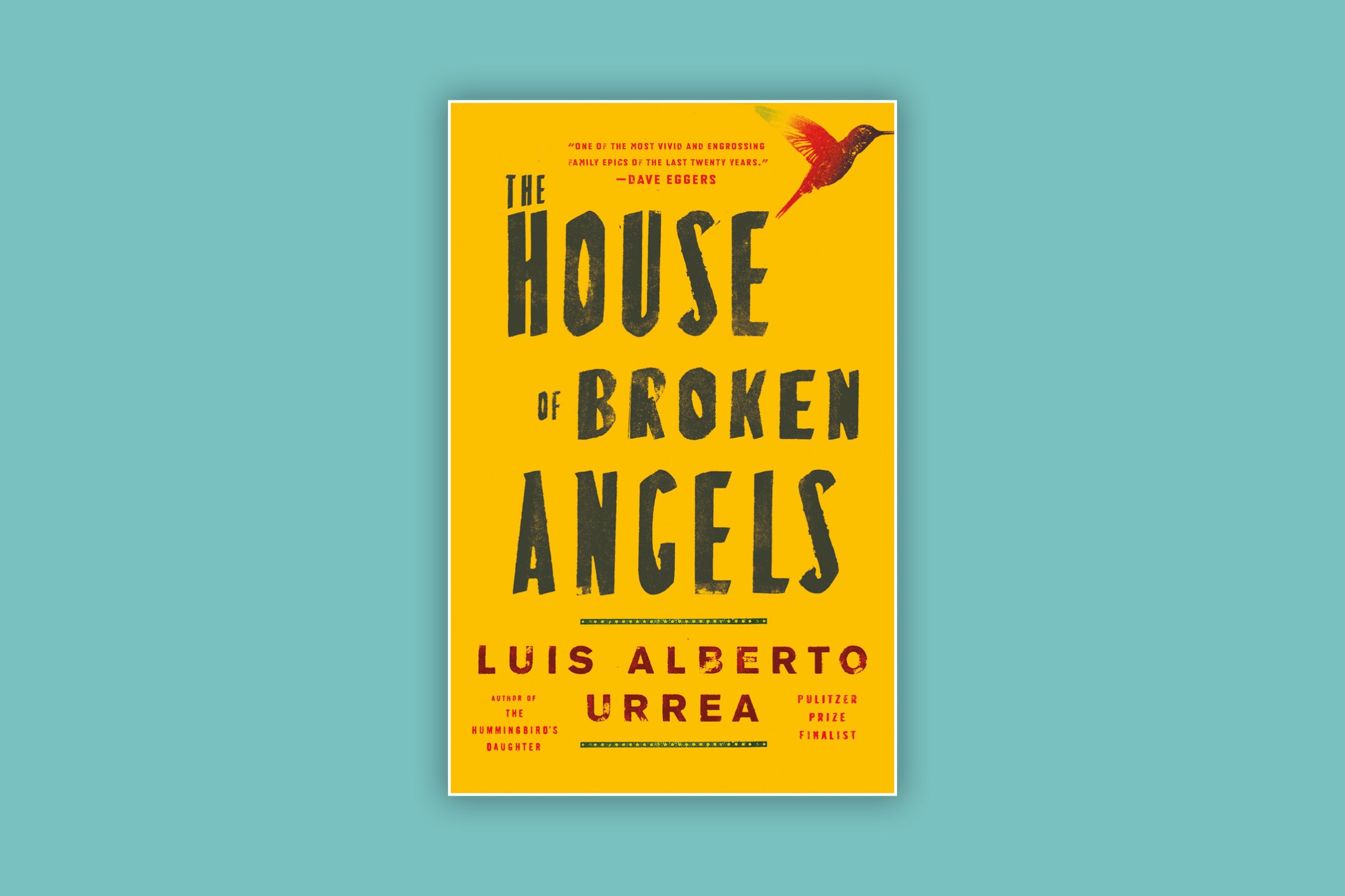
When the novelist Luis Alberto Urrea was 14 or 15, he took a trip deep into Mexico. He was born in Tijuana to a Mexican father and a white American mother before moving just across the border and eventually into the San Diego suburbs. But his father thought he was becoming “too American,” and took him on a 27-hour journey to Mazatlán. Along the way, his father gave him a paperback copy of The Godfather and told him it would change his life. “I don’t think he was trying to make a case for us being criminals,” Urrea says, “but he really felt this incredible connection to the family and the traditions and the honor for the old country, as people were making their way in the U.S.”
In his new novel The House of Broken Angels, Urrea has written his own take on the Godfather story (sans organized crime) with a Mexican-American Don Corleone figure at its center. The story takes place over two days, as Big Angel de la Cruz buries his mother and celebrates his final birthday party on earth; he knows he’s dying, and he’s gathered his extended family around him for a boisterous goodbye.
The premise was inspired by the final birthday party of Urrea’s elder brother three years ago. “Everybody was jammed in his backyard, and there was a DJ and people dancing and consuming serious tonnage of American junk food–they didn’t want Mexican food, they wanted KFC and pizza. I thought, Where are the tacos, dude? And my brother sat in his little chair in the middle of it. People were coming to him and kneeling, and they would thank him and kiss his hand or touch his head and tell him all the ways he had changed their lives.”
Urrea’s brother died of cancer within two weeks at 74, and the poignant event haunted the author. He considered writing a short memoir about it–“I was thinking about Truman Capote, when he did those tiny books about Christmas and Thanksgiving.” But his wife encouraged him to aim bigger. When he found himself seated next to the writer Jim Harrison at a dinner event, he shared the story, and Harrison said, “Sometimes God hands you a novel. You have to write it.” Urrea thought to himself, “Marching orders from Jim Harrison–this is good stuff. A kid from Tijuana doesn’t get that very often.”
The House of Broken Angels is a celebration of the Mexican-American family, but it also includes moments of frustration with this country’s treatment of the immigrant group. Before he got too sick to work, Big Angel worked in an office and drank coffee from a mug that said EL JEFE. “Yeah, the employees all got the message,” Urrea writes. “The beaner was calling himself their boss.” In a grocery store, a woman screams at two of his family members that they’ll be kicked out of the country soon. “I had to bite down on the bitter reed of my rage, man!” Urrea says. “I was having some pretty serious response to [Donald Trump’s] rhetoric. But you know, it may have shocked a lot of the United States to hear this kind of rhetoric and this bald-faced racialism of politics all of a sudden, but to us, this stuff isn’t a surprise.”
“I really wanted to write a tribute to my brother, to my family and to us, but it’s also a love song to the country,” Urrea says. “I think people have this weird, horrible view … that immigrants are evil snakes. People don’t understand that [immigration is] truly a statement of love for this country, what the country represents. People want to be here and work.” And with persistence, become el jefe.
More Must-Reads from TIME
- Why Biden Dropped Out
- Ukraine’s Plan to Survive Trump
- The Rise of a New Kind of Parenting Guru
- The Chaos and Commotion of the RNC in Photos
- Why We All Have a Stake in Twisters’ Success
- 8 Eating Habits That Actually Improve Your Sleep
- Welcome to the Noah Lyles Olympics
- Get Our Paris Olympics Newsletter in Your Inbox
Contact us at letters@time.com